Find Help
More Items From Ergsy search
-
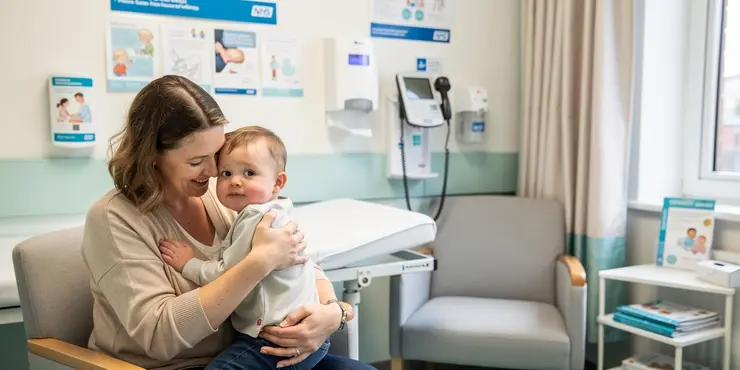
Having a child with Down's syndrome | NHS
Relevance: 100%
-
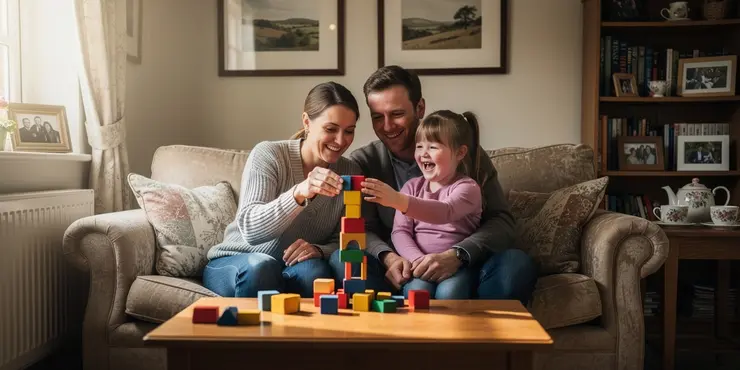
Down's syndrome: Emily's story | NHS
Relevance: 73%
-
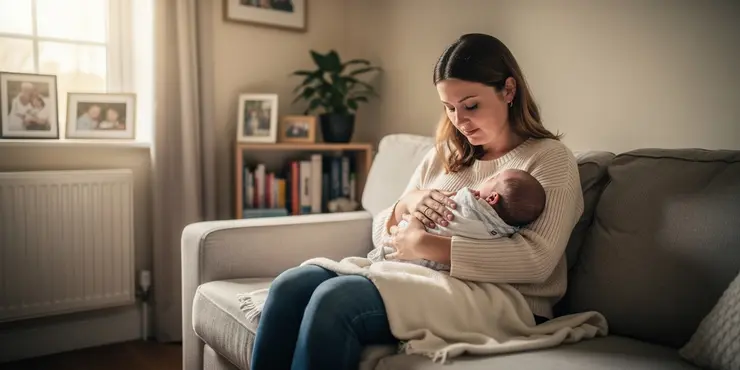
Having a child with Edwards' syndrome (trisomy 18) | NHS
Relevance: 55%
-
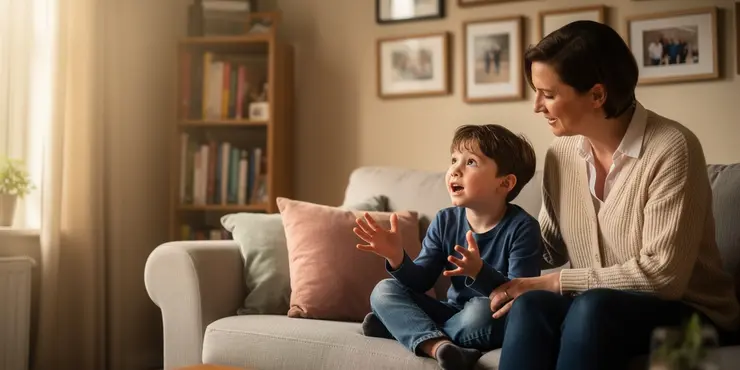
Building Understanding and Supporting Your Child with Tourette’s Syndrome/Tics
Relevance: 43%
-
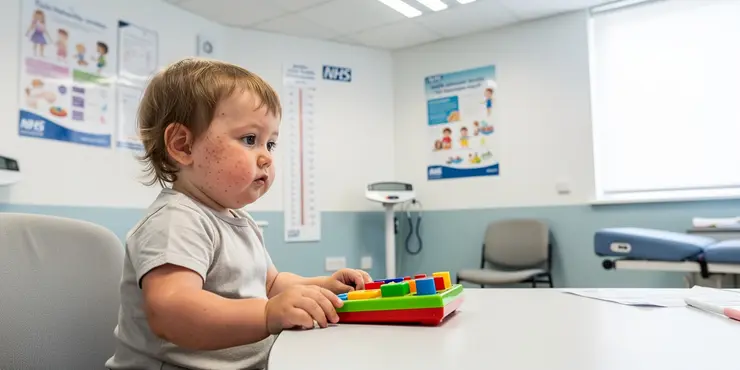
Prader-Willi Syndrome | NHS
Relevance: 40%
-
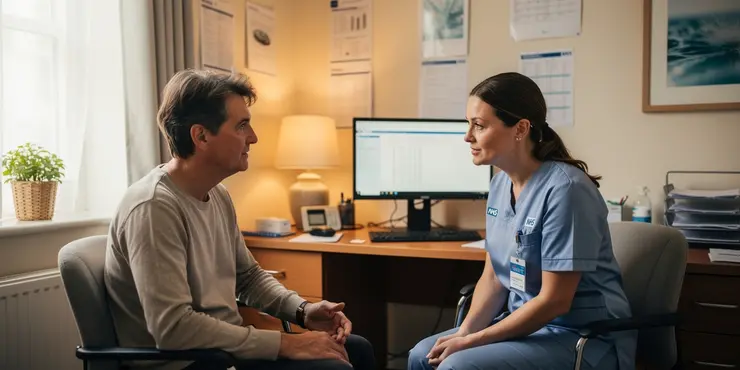
Munchausen's syndrome | NHS
Relevance: 38%
-
Can children develop chronic fatigue syndrome?
Relevance: 38%
-
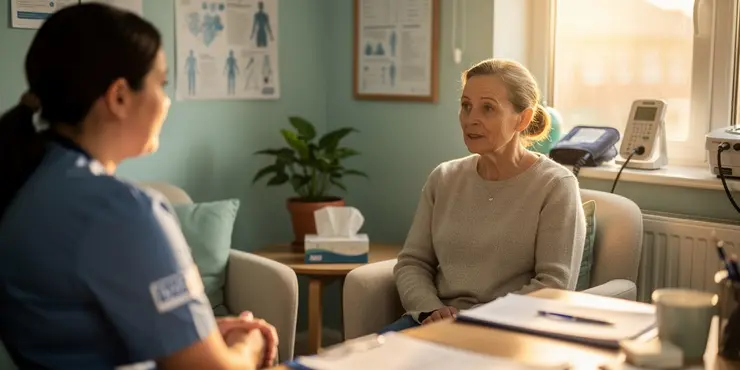
What is Cushing's syndrome?
Relevance: 37%
-
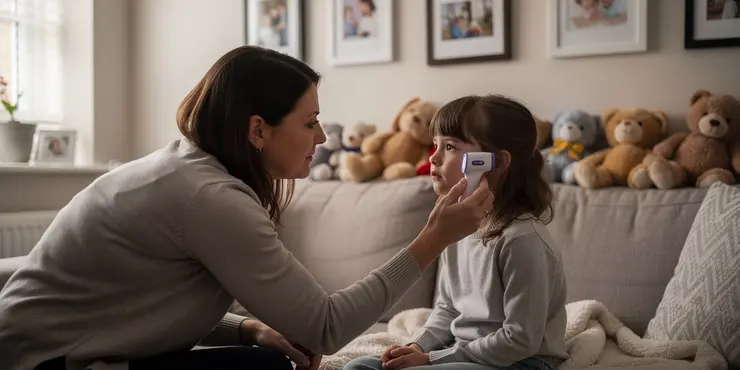
Caring for a child with fever | NHS
Relevance: 36%
-
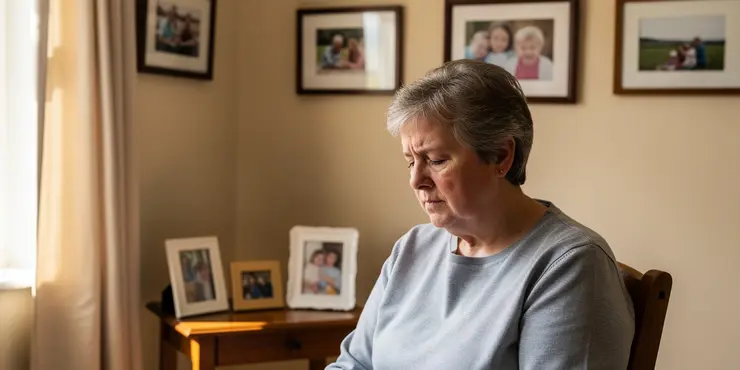
Child Bereavement
Relevance: 36%
-
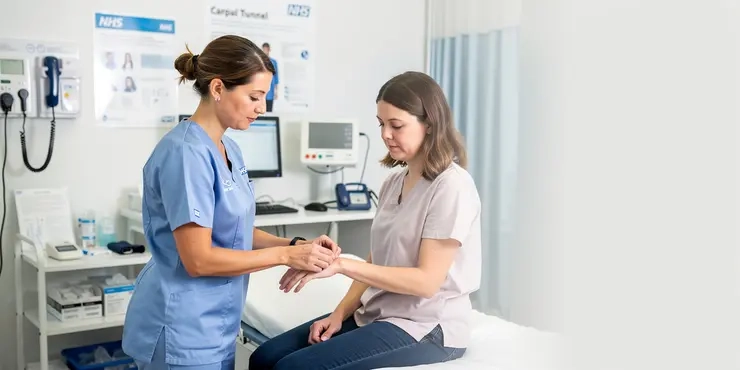
Carpal Tunnel Syndrome
Relevance: 35%
-
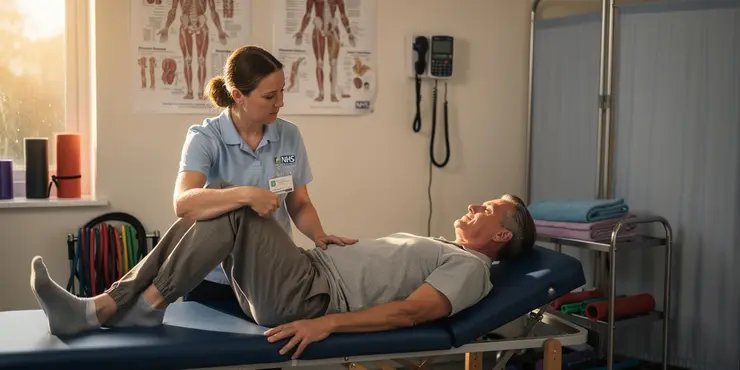
Exercises for sciatica: piriformis syndrome | NHS
Relevance: 35%
-
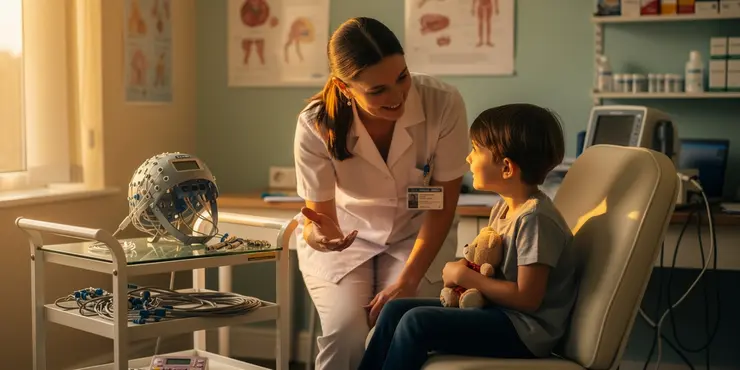
What happens when my child has an EEG?
Relevance: 34%
-
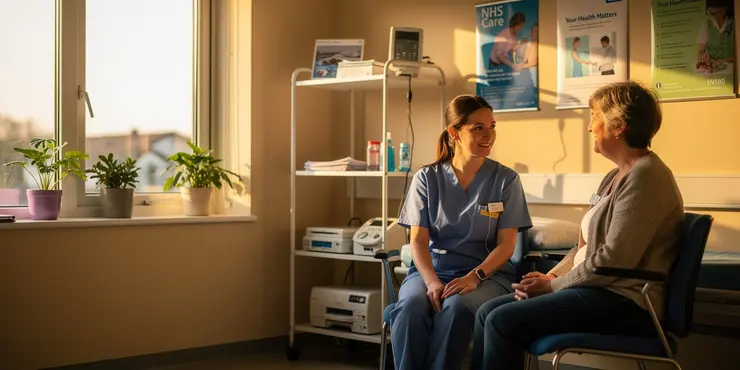
Is chronic fatigue syndrome contagious?
Relevance: 34%
-
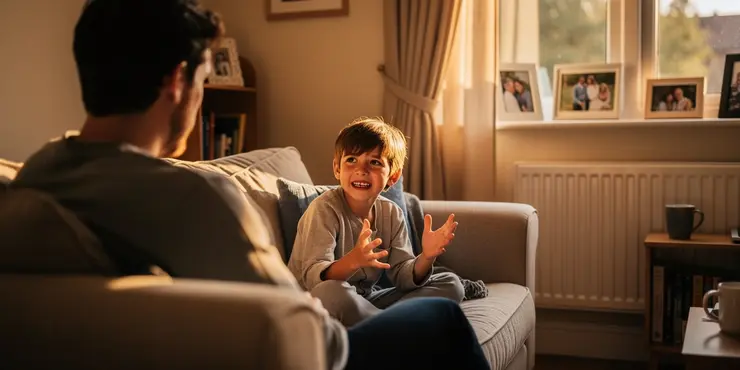
My Stammering Child
Relevance: 34%
-
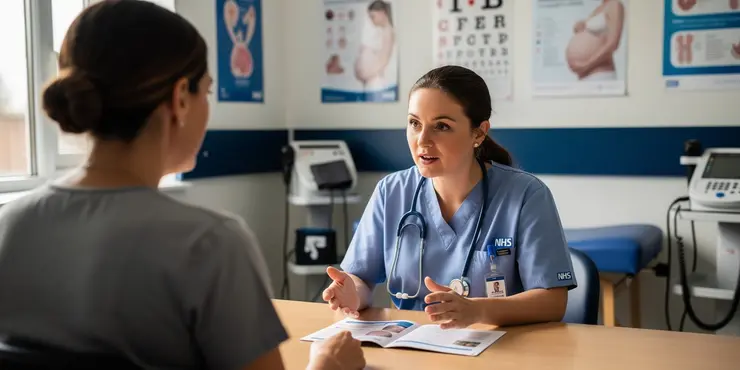
What is congenital rubella syndrome?
Relevance: 34%
-
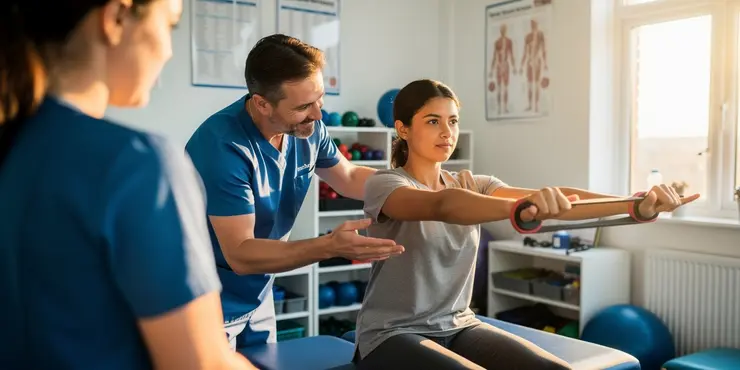
Greater trochanteric pain syndrome
Relevance: 34%
-
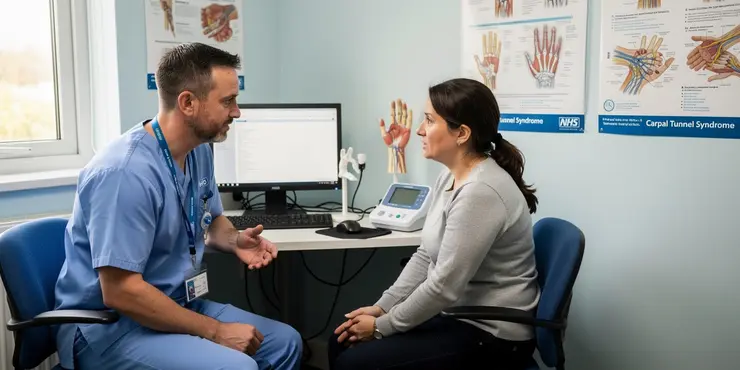
What causes Carpal Tunnel Syndrome?
Relevance: 33%
-
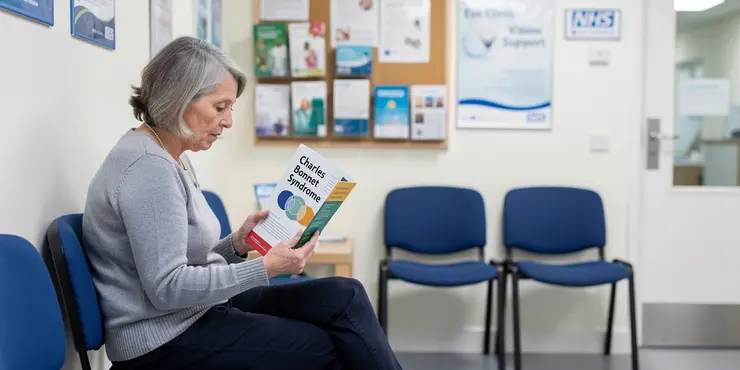
Charles Bonnet Syndrome
Relevance: 33%
-
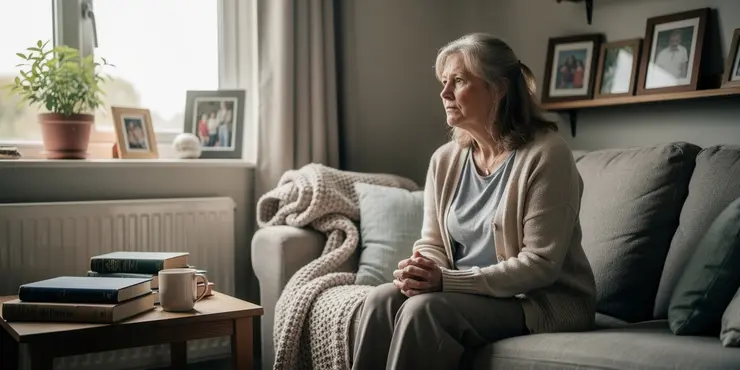
What causes chronic fatigue syndrome?
Relevance: 33%
-
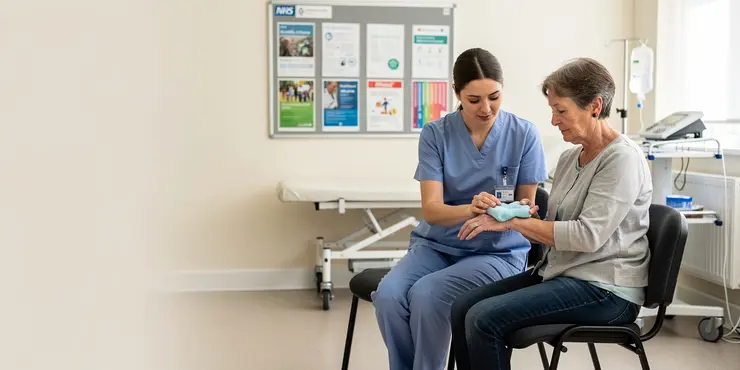
How can I cool down quickly if I start feeling overheated?
Relevance: 33%
-
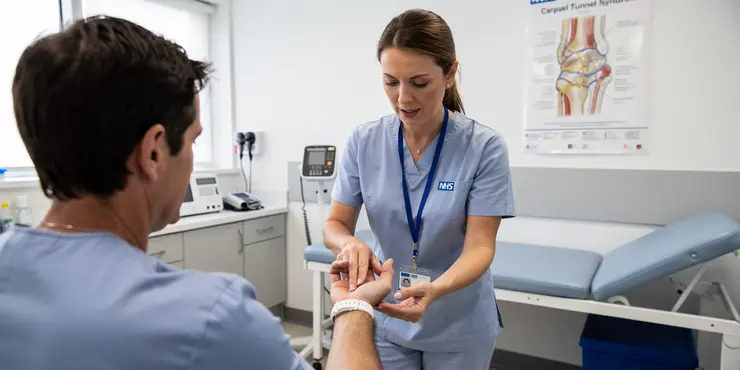
Is Carpal Tunnel Syndrome covered by the NHS?
Relevance: 33%
-
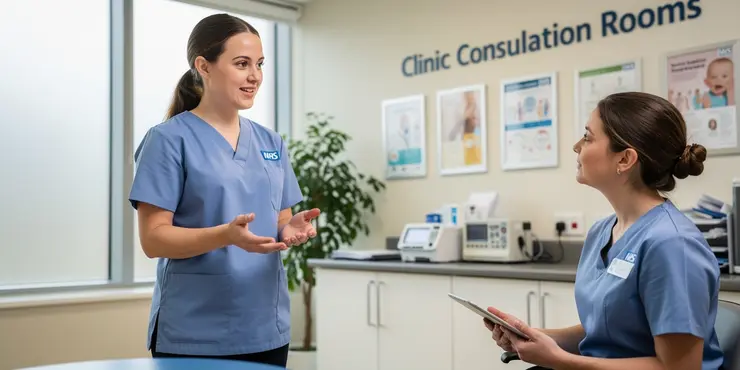
Turner syndrome: Beyond the classic XO phenotype
Relevance: 33%
-
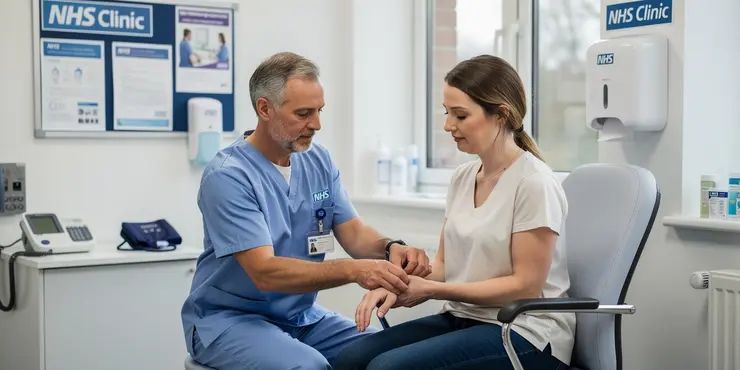
How is Carpal Tunnel Syndrome diagnosed?
Relevance: 33%
-
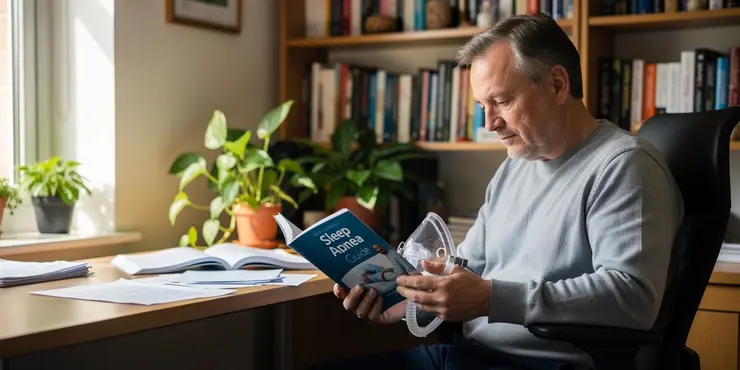
What is complex sleep apnea syndrome?
Relevance: 33%
-
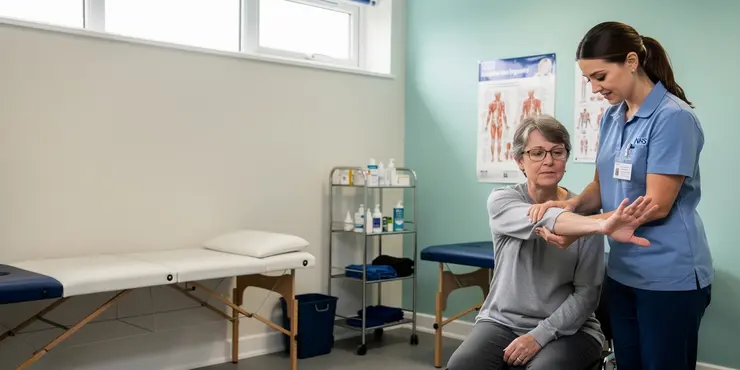
Are there specific exercises that can help with Carpal Tunnel Syndrome?
Relevance: 32%
-
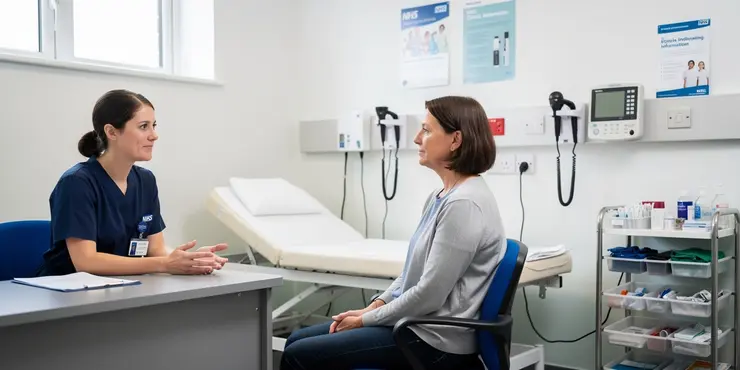
What is complex sleep apnea syndrome?
Relevance: 32%
-
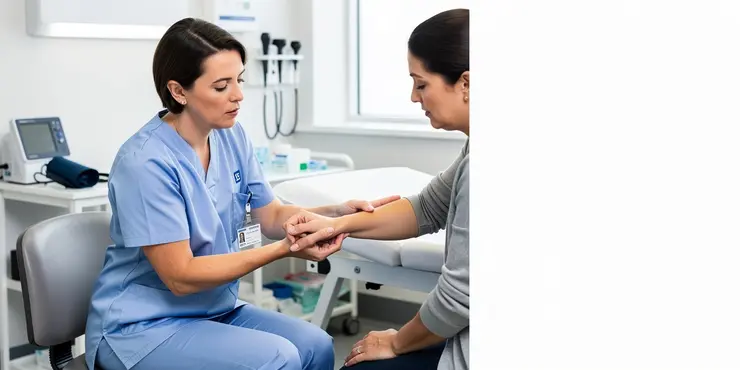
What is Carpal Tunnel Syndrome (CTS)?
Relevance: 32%
-
What is chronic fatigue syndrome?
Relevance: 32%
-
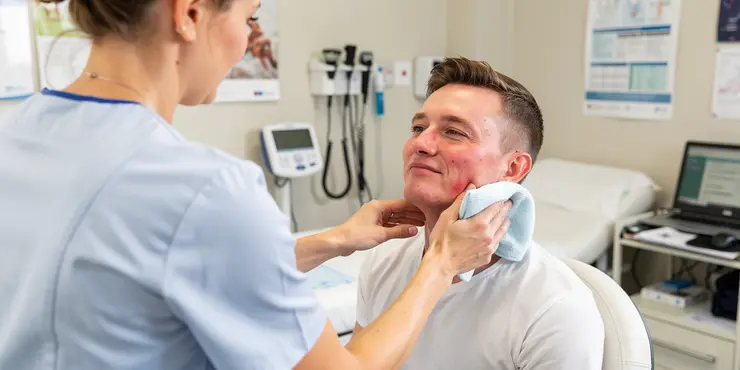
Is it okay to use ice packs or cold showers to cool down?
Relevance: 32%
-
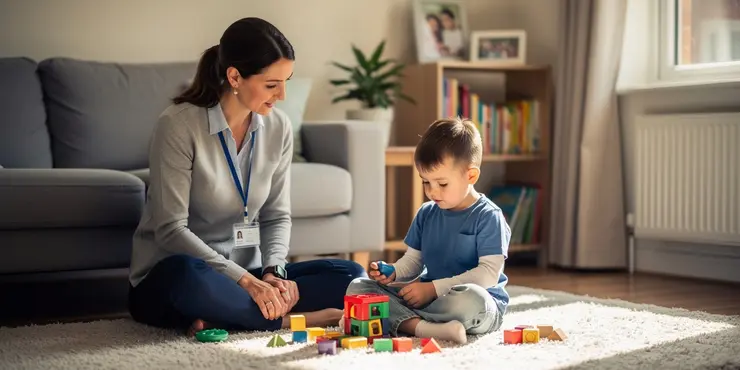
Child Care Proceedings | Family Law
Relevance: 32%
-
How can I prevent Carpal Tunnel Syndrome?
Relevance: 32%
-
Can baby sleep pillows prevent flat head syndrome?
Relevance: 31%
-
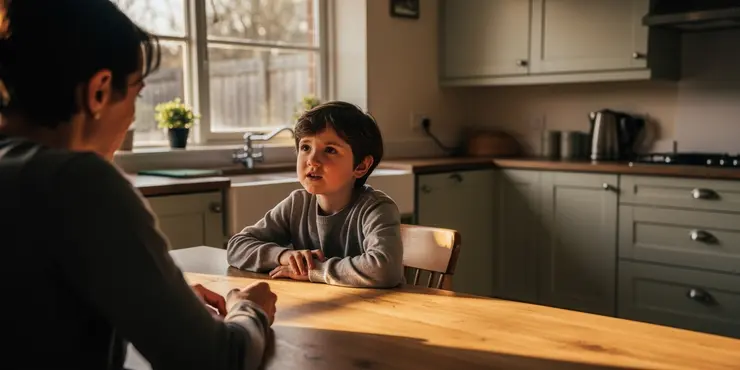
Navigating Child Custody Laws in the UK
Relevance: 31%
-
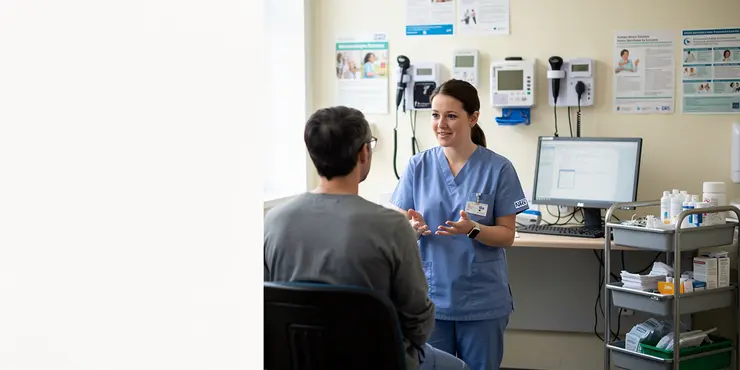
What is the difference between autism and Asperger's syndrome?
Relevance: 31%
-
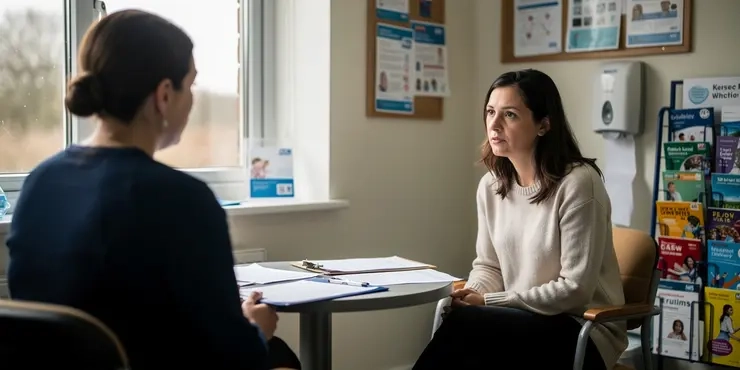
Understanding Parental Rights in Light of New UK Child Protection Legislation
Relevance: 31%
-
Is screening painful or risky for my child?
Relevance: 31%
-
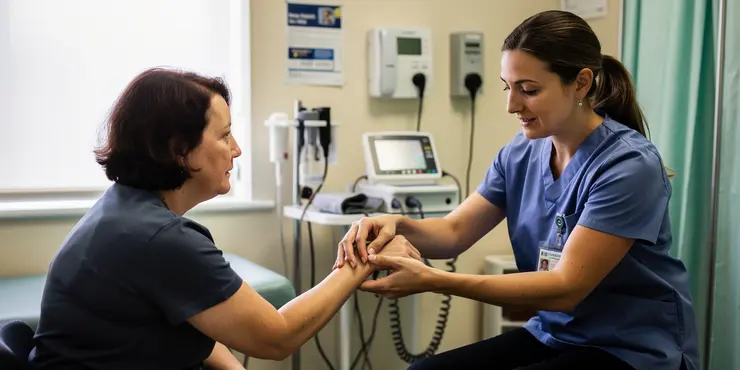
Are there any alternative treatments for Carpal Tunnel Syndrome?
Relevance: 31%
-
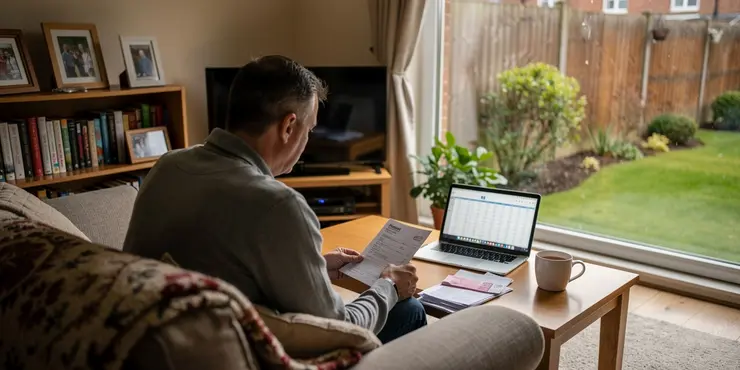
Should you Pay down your Residential Mortgage?
Relevance: 31%
-
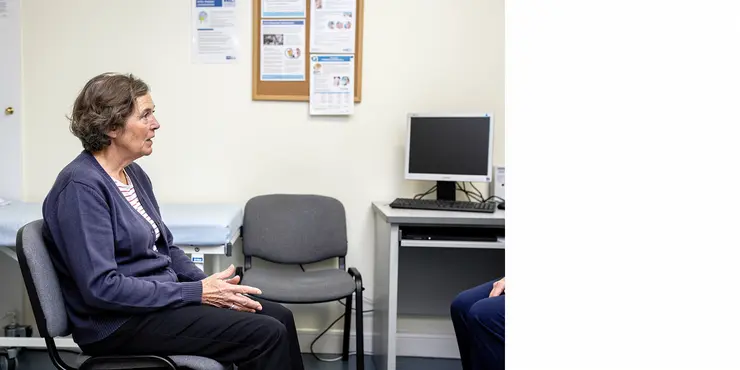
Are there psychological aspects to chronic fatigue syndrome?
Relevance: 30%
Having a Child with Down's Syndrome | NHS
Understanding Down's Syndrome
Down's syndrome, also known as trisomy 21, is a genetic condition where a person has an extra chromosome 21. This results in some distinct physical characteristics and varying degrees of learning disabilities. Early intervention and support from healthcare professionals can help children with Down's syndrome lead fulfilling lives.
Diagnosis and Support
Down's syndrome can often be diagnosed during pregnancy through screening and diagnostic tests. After birth, diagnosis is usually confirmed through genetic testing. The NHS offers comprehensive support for families, including genetic counseling, healthcare management, and early developmental support services.
Healthcare for Children with Down's Syndrome
Children with Down's syndrome are more likely to encounter certain health issues such as heart and gastrointestinal problems. Regular medical check-ups and ongoing care are crucial. The NHS provides specialized clinics and healthcare services, including pediatricians, cardiologists, and other specialists to monitor and address these needs.
Educational Support and Inclusive Learning
Children with Down's syndrome can thrive in inclusive educational settings with adequate support. The UK education system offers tailored learning plans, special educational needs (SEN) support, and access to specialist teaching assistants. Parents are encouraged to work closely with schools to create optimal learning environments.
Community and Emotional Support
Emotional and community support plays a vital role in the well-being of families with a child with Down's syndrome. The NHS collaborates with various support groups and charities such as the Down's Syndrome Association, providing resources, social networks, and counseling services to families.
Future Outlook
With modern medical advancements and inclusive societal attitudes, individuals with Down's syndrome can achieve remarkable milestones. The NHS remains committed to providing comprehensive care and support, helping children with Down's syndrome in the UK to reach their full potential and enjoy quality lives.
Having a Child with Down's Syndrome | NHS
Understanding Down's Syndrome
Down's syndrome is a condition that happens when a person has an extra part in their DNA called chromosome 21. People with Down's syndrome might look a bit different and need extra help learning. Doctors and helpers can support children with this condition so they can live happy lives.
Diagnosis and Support
You can find out if a baby has Down's syndrome before they are born with special tests. After the baby is born, doctors check their DNA to be sure. The NHS gives families lots of help, like talking with experts, health check-ups, and early learning support.
Healthcare for Children with Down's Syndrome
Children with Down's syndrome may have some health problems, like issues with their heart. They need to see doctors often to stay healthy. The NHS has special doctors to take care of these children and make sure they get the care they need.
Educational Support and Inclusive Learning
Children with Down's syndrome can do well in school if they have the right help. Schools in the UK can make special plans for them and give extra support. Teachers and parents work together to make sure every child learns in the best way.
Community and Emotional Support
It's important for families with a child with Down's syndrome to have support. The NHS works with groups like the Down's Syndrome Association. These groups offer help, places to meet other families, and people to talk to for advice.
Future Outlook
Today, with better medicine and more understanding, children with Down's syndrome can do amazing things. The NHS helps them grow up strong and happy, so they can enjoy their lives and do many things everyone else does.
Frequently Asked Questions
What is Down's syndrome?
Down's syndrome is a genetic condition that occurs when a person has an extra chromosome 21. This can cause a range of physical and intellectual disabilities.
How common is Down's syndrome?
In the UK, around 1 in every 1,000 babies is born with Down's syndrome.
What are the common characteristics of a child with Down's syndrome?
Children with Down's syndrome often have distinct facial features, developmental delays, and may have various health issues such as heart defects or hearing problems.
Is there a cure for Down's syndrome?
There is no cure for Down's syndrome, but early intervention, education, and appropriate health care can improve the quality of life for those affected.
How is Down's syndrome diagnosed?
Down's syndrome can be diagnosed before birth through screening tests like the combined test (blood test and nuchal translucency scan) and diagnostic tests such as amniocentesis. After birth, it can be diagnosed with a blood test.
What kind of support is available for children with Down's syndrome?
Support can include early intervention programmes, special education, physiotherapy, speech therapy, and various health services. Charities and support groups also offer resources and community.
Can children with Down's syndrome attend mainstream schools?
Many children with Down's syndrome attend mainstream schools, often with additional support. The appropriateness of mainstream schooling depends on the child's individual needs.
What are the common health issues associated with Down's syndrome?
Individuals with Down's syndrome are more prone to health issues like congenital heart defects, respiratory problems, thyroid conditions, and hearing or vision impairments.
Will my child with Down's syndrome be able to lead an independent life?
Many individuals with Down's syndrome live semi-independent or independent lives, often with support for specific needs. Early education and life skills training can help them achieve greater independence.
What causes Down's syndrome?
Down's syndrome is caused by the presence of an extra chromosome 21, which occurs due to a random genetic error during the formation of eggs or sperm.
Can Down's syndrome be prevented?
Down's syndrome cannot be prevented. The occurrence is generally random, although the risk increases with maternal age.
How do I tell my child they have Down's syndrome?
It's important to approach the conversation with honesty and sensitivity. Use age-appropriate language and be ready to answer their questions. Support groups and healthcare professionals can offer guidance.
Will my child with Down's syndrome be able to work?
Many individuals with Down's syndrome gain employment in various fields. Vocational training and support from employment services can greatly assist in securing and maintaining a job.
How do I manage the stress of raising a child with Down's syndrome?
Seeking support from family, friends, and support groups can be very beneficial. Professional counselling can also help manage stress and provide coping strategies.
Are there financial supports available for families of children with Down's syndrome?
In the UK, families may be eligible for various benefits such as Disability Living Allowance (DLA), Carer's Allowance, and support through their local council.
What is Down's syndrome?
Down's syndrome is when a person is born with a difference in their genes. This difference affects how their body and brain work.
People with Down's syndrome can think, learn, and have feelings like everyone else. But they may need more time and help to learn new things.
There are many ways to support people with Down's syndrome:
- Be patient and kind.
- Use simple words and speak slowly.
- Show things with pictures or actions.
Down's syndrome is a condition that people are born with. It happens when they have an extra piece of DNA called chromosome 21. This can make it harder for them to learn and affect how their body grows and works.
How many people have Down's syndrome?
Down's syndrome happens when a baby is born with an extra copy of chromosome 21. This is not very common. About 1 out of every 1,000 babies is born with Down's syndrome.
For more help understanding this, you can:
- Look at pictures or watch videos about Down's syndrome.
- Ask a parent, teacher, or trusted adult for more information.
- Use apps or websites that explain things with simple words and images.
In the UK, about 1 out of every 1,000 babies is born with Down's syndrome.
What are common traits of a child with Down's syndrome?
Children with Down's syndrome are unique and special. They might have some traits that are common:
- They might look a little different with features like a flatter face and eyes that slant upwards.
- They might learn things slower and need extra help.
- They often have gentle and kind personalities.
- They may have weak muscles, which might make things like sitting and walking take longer to learn.
Helpful tools can be:
- Extra time to learn and practice new skills.
- Special teachers or helpers.
- Encouragement and lots of support from family and friends.
- Using pictures or simple words to help understand and learn.
Children with Down's syndrome often look a bit different. They may learn things more slowly. Sometimes, they have health problems like heart issues or trouble hearing.
Can Down's syndrome be cured?
No, Down's syndrome cannot be cured.
People with Down's syndrome are born with it.
But, there are ways to help people with Down's syndrome.
They can learn and grow with support.
Here are some ways to help:
- Special teachers and schools can help with learning.
- Doctors can help keep them healthy.
- Speech therapists can help with talking.
- Physical therapists can help with moving and playing.
Support and love from family and friends is very important.
There is no way to completely fix Down's syndrome. But helping early, learning, and good health care can make life better for people who have it.
How do doctors know if someone has Down's syndrome?
Doctors can find out if a baby has Down's syndrome before the baby is born. They do special tests:
- One test looks at the mom's blood and uses a special scan to see the baby. This is called the combined test.
- Another test takes a bit of the fluid from around the baby. This is called amniocentesis.
After the baby is born, doctors can do a blood test to check for Down's syndrome.
If reading is hard, try listening to someone read out loud or use an app that reads to you. Using pictures can also help make the information clearer.
What help can children with Down's syndrome get?
Help can include special programmes that start early, special schools, exercises to help move better, help with talking, and different health services. Charities and support groups also give resources and a place to meet others.
Can kids with Down's syndrome go to regular schools?
Yes, kids with Down's syndrome can go to regular schools. They can learn and make friends there.
Here are some things that can help:
- Supportive Teacher: A teacher who knows how to help them learn.
- Extra Help: Sometimes, kids need extra support, like a helper in class.
- Tools: Tools like picture cards or special computers can make learning easier.
Many children with Down's syndrome go to regular schools. They often have extra help. Choosing the right school depends on what the child needs.
What Health Problems Can People with Down's Syndrome Have?
People with Down's syndrome can have some health problems. These are the most common ones:
- Heart: Some people have trouble with their heart.
- Ears and Eyes: They might have problems seeing and hearing.
- Thyroid: This is a small part of the body that helps us grow. Sometimes it doesn't work well.
- Sleep: They might find it hard to sleep well.
It is important to visit the doctor regularly. They can help with these problems.
Tools that can help:
- Pictures: Use pictures to explain things.
- Videos: Watch videos together to learn more.
- Apps: There are apps that can help explain health.
Always ask a doctor if you have questions. They are there to help you feel better.
People with Down's syndrome can have more health problems. They might have:
- Heart problems they are born with
- Breathing problems
- Thyroid problems (this is a gland in your neck)
- Problems with hearing or seeing
Using pictures or videos can help explain these health issues better. Talking with a doctor can also be helpful.
Can my child with Down's syndrome live on their own?
Children with Down's syndrome can learn to do many things on their own. Some may live by themselves or with a little help.
Every child is different. It helps to:
- Talk to teachers and doctors.
- Practice life skills like cooking and money.
- Use pictures and simple words to teach new things.
- Play games and use apps that help learning.
With support, many children grow up to do a lot on their own.
People with Down's syndrome can live on their own or almost on their own. They might need some help with certain things. Learning early and practicing life skills can help them be more independent.
Why does Down's syndrome happen?
Down's syndrome happens because of a change in the baby's cells. Usually, people have 46 pieces called chromosomes in their cells. In Down's syndrome, there is an extra chromosome. This extra piece changes how the baby's body and brain grow.
If you want to know more or need help, you can:
- Look at pictures or videos about Down's syndrome.
- Ask a grown-up or a helper to explain it to you.
- Use simple apps or websites that talk about Down's syndrome.
Down's syndrome happens when there is an extra piece called chromosome 21. This happens by chance when eggs or sperm are made.
Can we stop Down's syndrome from happening?
We can't stop Down's syndrome from happening. It can happen to anyone. But the chance is bigger if the mother is older.
How do I talk to my child about having Down's syndrome?
Telling your child about Down's syndrome can feel hard. Here are some tips to help you:
- Use simple words your child understands.
- Be honest and kind.
- Explain there are things they may find harder.
- Talk about their strengths and talents too.
- Read a story or watch a video together about Down's syndrome.
- Answer their questions calmly.
It's okay to ask a doctor or support group for help if you need it.
It's good to be honest and kind when you talk. Use simple words that are right for their age. Be ready to answer their questions. You can also ask support groups and doctors for help.
Can my child with Down's syndrome have a job?
Yes, your child with Down's syndrome can have a job. They might need some help to learn and do their work. Many people with Down's syndrome can do different jobs when they grow up.
Here are some ways to help:
- Training: Special classes can help your child learn skills for work.
- Support: A job coach can help your child do their job better.
- Tools: Simple tools or apps can help your child understand tasks.
With practice and support, your child can enjoy working and doing different activities.
Many people with Down's syndrome can get jobs in different areas. Training for work and help from job services can really help them find and keep a job.
How can I handle stress when raising a child with Down's syndrome?
Raising a child with Down's syndrome can be hard sometimes. Here are some tips to help you feel better:
- Take breaks: Make sure you get some time for yourself, even if it's just a little while.
- Ask for help: Talk to friends, family, or support groups when you need support.
- Learn about Down's syndrome: Read books or ask your child's doctor if you have questions.
- Talk to others: Meeting other parents with children who have Down's syndrome can be helpful.
Remember, it's okay to feel stressed. Taking care of yourself helps you take care of your child too.
Talking to family, friends, or support groups can be really helpful. A counselor can also help you feel less stressed and give you tips to handle tough times.
Help with Money for Families of Children with Down's Syndrome
Can families with a child who has Down's syndrome get money help? Yes, there is help.
You can look for:
- Benefits: Money from the government.
- Charities: Groups that give help or money.
- Local services: Things in your area to help families.
If you need help, tell someone you trust or talk to a community worker.
In the UK, families can get help with money. They might get money called Disability Living Allowance (DLA) or Carer's Allowance. They can also get help from their local council.
Useful Links
This website offers general information and is not a substitute for professional advice.
Always seek guidance from qualified professionals.
If you have any medical concerns or need urgent help, contact a healthcare professional or emergency services immediately.
Some of this content was generated with AI assistance. We’ve done our best to keep it accurate, helpful, and human-friendly.
- Ergsy carfully checks the information in the videos we provide here.
- Videos shown by Youtube after a video has completed, have NOT been reviewed by ERGSY.
- To view, click the arrow in centre of video.
- Most of the videos you find here will have subtitles and/or closed captions available.
- You may need to turn these on, and choose your preferred language.
- Go to the video you'd like to watch.
- If closed captions (CC) are available, settings will be visible on the bottom right of the video player.
- To turn on Captions, click settings .
- To turn off Captions, click settings again.
More Items From Ergsy search
-

Having a child with Down's syndrome | NHS
Relevance: 100%
-

Down's syndrome: Emily's story | NHS
Relevance: 73%
-

Having a child with Edwards' syndrome (trisomy 18) | NHS
Relevance: 55%
-

Building Understanding and Supporting Your Child with Tourette’s Syndrome/Tics
Relevance: 43%
-

Prader-Willi Syndrome | NHS
Relevance: 40%
-

Munchausen's syndrome | NHS
Relevance: 38%
-
Can children develop chronic fatigue syndrome?
Relevance: 38%
-

What is Cushing's syndrome?
Relevance: 37%
-

Caring for a child with fever | NHS
Relevance: 36%
-

Child Bereavement
Relevance: 36%
-

Carpal Tunnel Syndrome
Relevance: 35%
-

Exercises for sciatica: piriformis syndrome | NHS
Relevance: 35%
-

What happens when my child has an EEG?
Relevance: 34%
-

Is chronic fatigue syndrome contagious?
Relevance: 34%
-

My Stammering Child
Relevance: 34%
-

What is congenital rubella syndrome?
Relevance: 34%
-

Greater trochanteric pain syndrome
Relevance: 34%
-

What causes Carpal Tunnel Syndrome?
Relevance: 33%
-

Charles Bonnet Syndrome
Relevance: 33%
-

What causes chronic fatigue syndrome?
Relevance: 33%
-

How can I cool down quickly if I start feeling overheated?
Relevance: 33%
-

Is Carpal Tunnel Syndrome covered by the NHS?
Relevance: 33%
-

Turner syndrome: Beyond the classic XO phenotype
Relevance: 33%
-

How is Carpal Tunnel Syndrome diagnosed?
Relevance: 33%
-

What is complex sleep apnea syndrome?
Relevance: 33%
-

Are there specific exercises that can help with Carpal Tunnel Syndrome?
Relevance: 32%
-

What is complex sleep apnea syndrome?
Relevance: 32%
-

What is Carpal Tunnel Syndrome (CTS)?
Relevance: 32%
-
What is chronic fatigue syndrome?
Relevance: 32%
-

Is it okay to use ice packs or cold showers to cool down?
Relevance: 32%
-

Child Care Proceedings | Family Law
Relevance: 32%
-
How can I prevent Carpal Tunnel Syndrome?
Relevance: 32%
-
Can baby sleep pillows prevent flat head syndrome?
Relevance: 31%
-

Navigating Child Custody Laws in the UK
Relevance: 31%
-

What is the difference between autism and Asperger's syndrome?
Relevance: 31%
-

Understanding Parental Rights in Light of New UK Child Protection Legislation
Relevance: 31%
-
Is screening painful or risky for my child?
Relevance: 31%
-

Are there any alternative treatments for Carpal Tunnel Syndrome?
Relevance: 31%
-

Should you Pay down your Residential Mortgage?
Relevance: 31%
-

Are there psychological aspects to chronic fatigue syndrome?
Relevance: 30%


